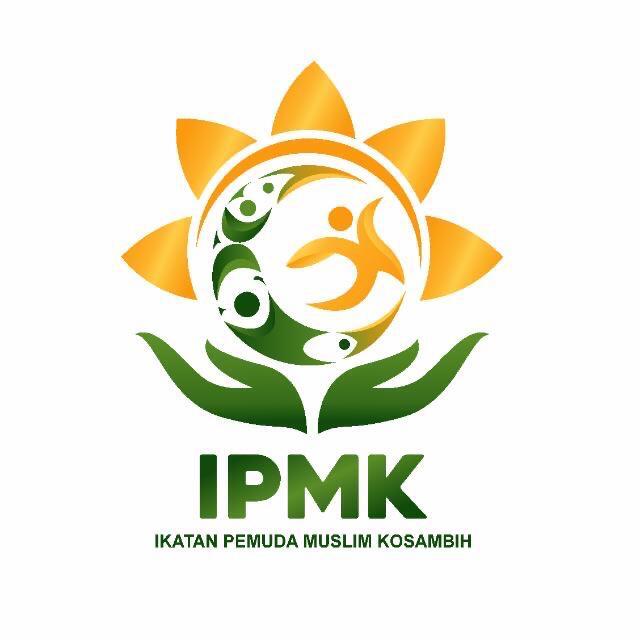Personal Finance Strategies to Achieve Long-Term Financial Goals and Economic Independence
Keywords:
Personal Financial Strategy, Long-Term Financial Goals, Economic Independence, Financial Management.Abstract
This study aims to examine personal finance strategies applied by individuals in an effort to achieve long-term financial goals and build economic independence. The research method used is a combination of qualitative and quantitative approaches, including in-depth interviews and questionnaire surveys. Primary data was obtained through interviews with respondents who had implemented personal finance strategies, as well as a survey of a representative sample of the community. Secondary data is collected from the analysis of related documents and literature, as well as statistical data from official sources. The results showed that respondents had various long-term financial goals, such as retirement preparation, financing children's education, and wealth building. They have implemented a comprehensive personal finance strategy, covering budget management, debt management, emergency fund formation, and investment portfolio development. This strategy is adjusted to the risk profile and time frame for achieving each individual's financial goals. The implementation of effective personal finance strategies has helped respondents achieve long-term financial goals gradually and increase their economic independence. The main supporting factors are financial awareness, self-discipline, and family support, while the challenges faced include income fluctuations, rising living costs, and economic uncertainty. The findings of this study can be a reference for the wider community in managing personal finances effectively to achieve long-term financial goals and build economic independence.
References
Adlini, M. N., Dinda, A. H., Yulinda, S., Chotimah, O., & Merliyana, S. J. (2022). Qualitative Research Methods of Literature Studies. Edumaspul: Journal of Education, 6(1), 974–980. https://doi.org/10.33487/edumaspul.v6i1.3394
Anas, A. (2024). STRENGTHENING THE COMMUNITY'S ECONOMY THROUGH GOLD-BACKED QARDH: EXPERIENCES AND LESSONS FROM BPRS SARANA PRIMA MANDIRI BANDARAN CASH OFFICE. Currency: Journal of Sharia Economics and Banking, 2(1), 222–232. https://doi.org/10.32806/wd7xg190
Anas, A. T., & Ashari, A. (n.d.). SMART TRADITIONAL MARKET TRADERS; CREATIVE & INNOVATIVE BUSINESS OPPORTUNITIES IN THE DIGITAL ERA.
Assuri, M. (2022). THE USE OF DIGITAL MARKETING IN THE FIELD OF SHARIA MARKETING MANAGEMENT TO IMPROVE THE HOME SNACK BUSINESS IN SOKOBANAH DAYA VILLAGE, SOKOBANAH DISTRICT, SAMPANG REGENCY. Invest: Journal of Economics and Banking, 3(2), 419–429. https://doi.org/10.32806/ivi.v3i2.111
Bahri, M. (2024). PRODUCT MARKETING PATTERN AT BANK BRI SYARIAH PAMEKASAN BRANCH. Currency: Journal of Sharia Economics and Banking, 1(2), 138–159. https://doi.org/10.32806/pj6w5840
Dhamayantie, E., & Fauzan, R. (2017). STRENGTHENING ENTREPRENEURIAL CHARACTERISTICS AND COMPETENCIES TO IMPROVE THE PERFORMANCE OF MSMES. Matrix: Journal of Management, Business Strategy and Entrepreneurship. https://doi.org/10.24843/MATRIK:JMBK.2017.v11.i01.p07
H. Holle, M., & Manilet, A. (2023). INDONESIAN FINANCIAL INCLUSION INDEX (ANALYSIS OF THE CONTRIBUTION OF MICROFINANCE INSTITUTIONS). Invest: Journal of Economics and Banking, 4(2), 550–569. https://doi.org/10.32806/ivi.v4i2.139
Habibi, M., & Zakiah, F. (2023). DYNAMICS OF INDONESIA'S ECONOMIC GROWTH: ANALYSIS OF THE IMPACT OF INFLATION AND CURRENCY EXCHANGE RATES (2010-2021). Invest: Journal of Economics and Banking, 4(1), 458–465. https://doi.org/10.32806/ivi.v4i1.116
Johan, J. (2024). INNOVATIONS IN FINANCIAL TECHNOLOGY: TRANSFORMING TRADITIONAL BANKING AND INVESTMENT PRACTICES. Currency: Journal of Sharia Economics and Banking, 2(2), 296–314. https://doi.org/10.32806/4a2g7278
Kadir, A., Kunaifi, A., & Zainuddin, Z. (2024a). MARKETING STRATEGIES IN INCREASING COOPERATIVE COMPETITIVENESS AT BMT SIDOGIRI CAPEM WARU. Currency: Journal of Sharia Economics and Banking, 1(1), 79–88. https://doi.org/10.32806/tpqfj628
Kadir, A., Kunaifi, A., & Zainuddin, Z. (2024b). MARKETING STRATEGIES IN INCREASING COOPERATIVE COMPETITIVENESS AT BMT SIDOGIRI CAPEM WARU. Currency: Journal of Sharia Economics and Banking, 1(1), 79–88. https://doi.org/10.32806/tpqfj628
Ramin, M. (n.d.). IMPLEMENTATION OF WADIAH CONTRACT IN EASY WADIAH SAVINGS PRODUCTS AT BANK SYARIAH INDONESIA (BSI) KCP SAMPANG.
Ramin, M., Bella, Y. C., Hasanah, L., & Munawwarah, S. (2023). STOCK PORTFOLIO DIVERSIFICATION STRATEGY ON THE IDX TO REDUCE RESIKO. 4.
Wahyudin, A. (2024). THE ROLE OF FINANCIAL PRODUCT INNOVATION IN OVERCOMING THE ECONOMIC IMPACT OF THE PANDEMIC: THE CASE OF DEPOSITS WITH WIN SOLUTION PRIZES AT BPRS SARANA PRIMA MANDIRI PAMEKASAN. Currency: Journal of Islamic Economics and Banking, 2(1), 190–201. https://doi.org/10.32806/4v82v353
Wasilah, K. (2023). APPLICATION OF THE PAKEM METHOD (ACTIVE, CREATIVE, EFFECTIVE, FUN LEARNING) IN MADRASAS. Journal Creativity, 1(1), 29–40. https://doi.org/10.62288/creativity.v1i1.6
Yuliani, W. (2018). QUALITATIVE DESCRIPTIVE RESEARCH METHODS IN THE PERSPECTIVE OF GUIDANCE AND COUNSELING. 2(2).
Zainurrofiq, Samsuri, Rohmat, S., & Sodiki, Ach. (2023). IMPLEMENTATION OF THE INDEPENDENT CURRICULUM IN AN EFFORT TO INCREASE STUDENTS' INTEREST IN LEARNING AT THE MA. MAMBAUL ULUM BRICKS. Journal Creativity, 1(2), 96–102. https://doi.org/10.62288/creativity.v1i2.11
Downloads
Published
Issue
Section
License
Copyright (c) 2025 Ismiatul Khairiyah (Author)

This work is licensed under a Creative Commons Attribution-NonCommercial-ShareAlike 4.0 International License.
Licensing Terms
Journal Of Multi Currency use attribution-NonCommercial 4.0 International License

This work is licensed under a Creative Commons Attribution-NonCommercial-ShareAlike 4.0 International License.
You are free to:
- Share — copy and redistribute the material in any medium or format
- Adapt — remix, transform, and build upon the material
Under the following terms:
-
Attribution — You must give appropriate credit, provide a link to the license, and indicate if changes were made. You may do so in any reasonable manner, but not in any way that suggests the licensor endorses you or your use.
-
NonCommercial — You may not use the material for commercial purposes.








